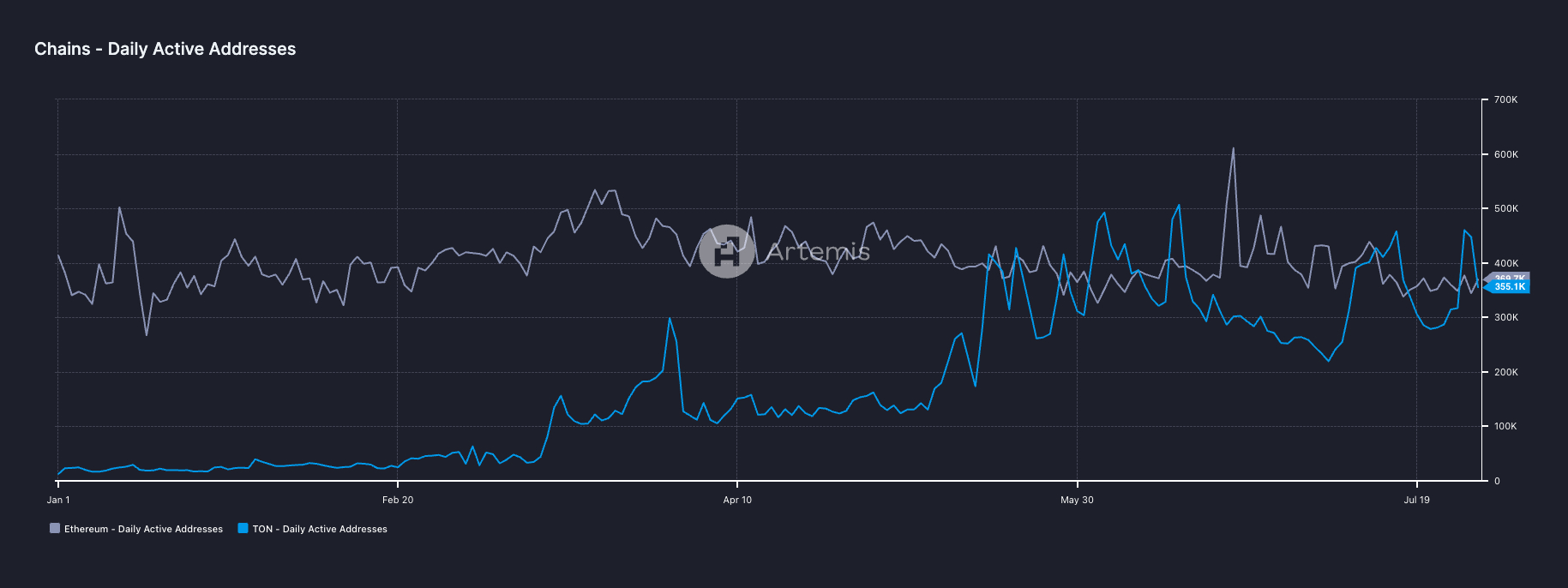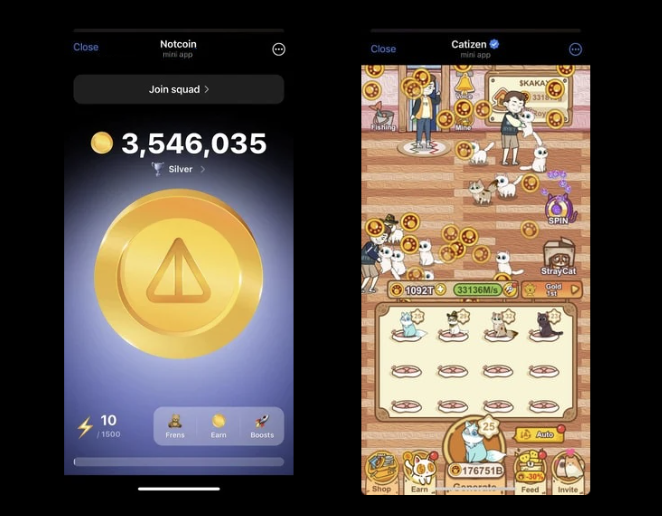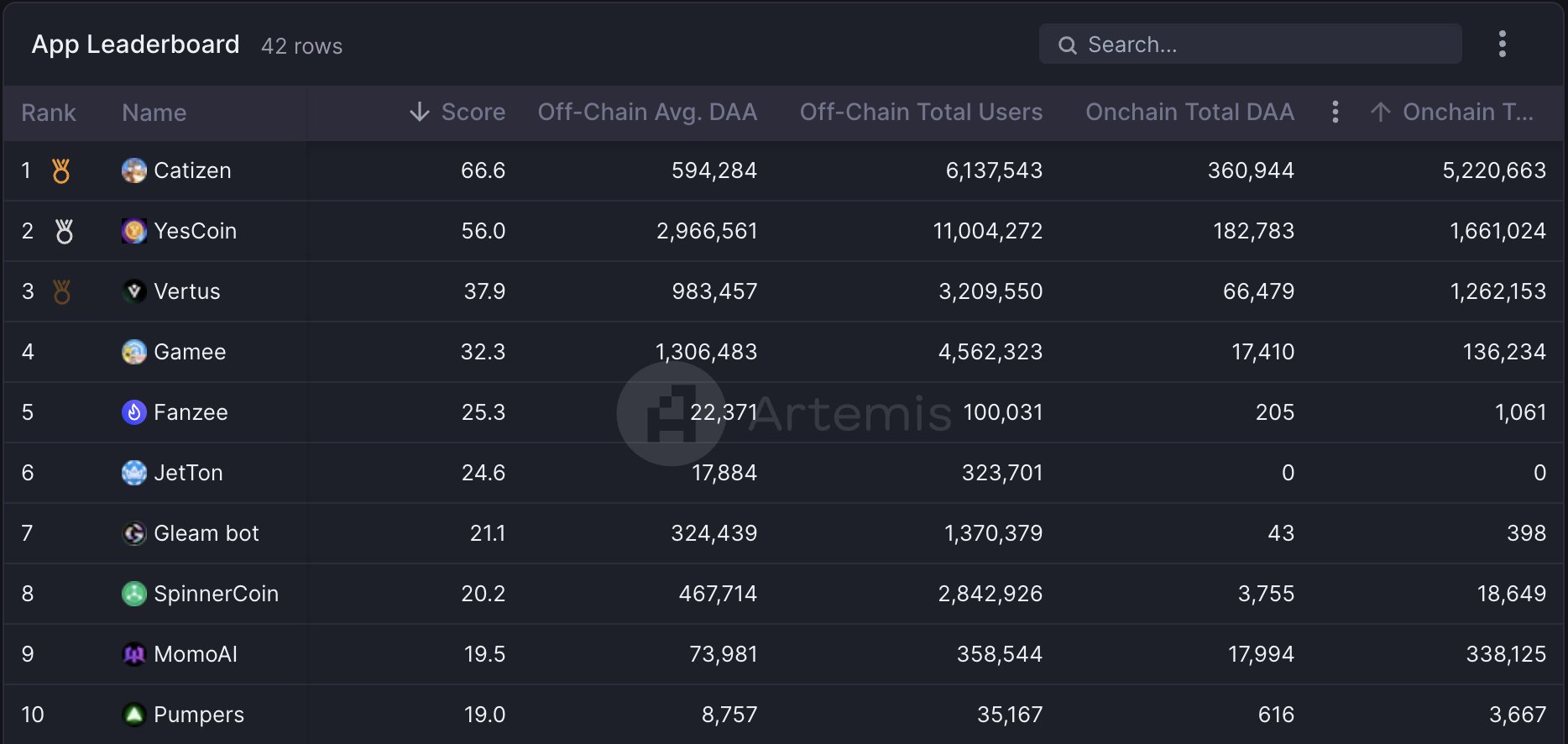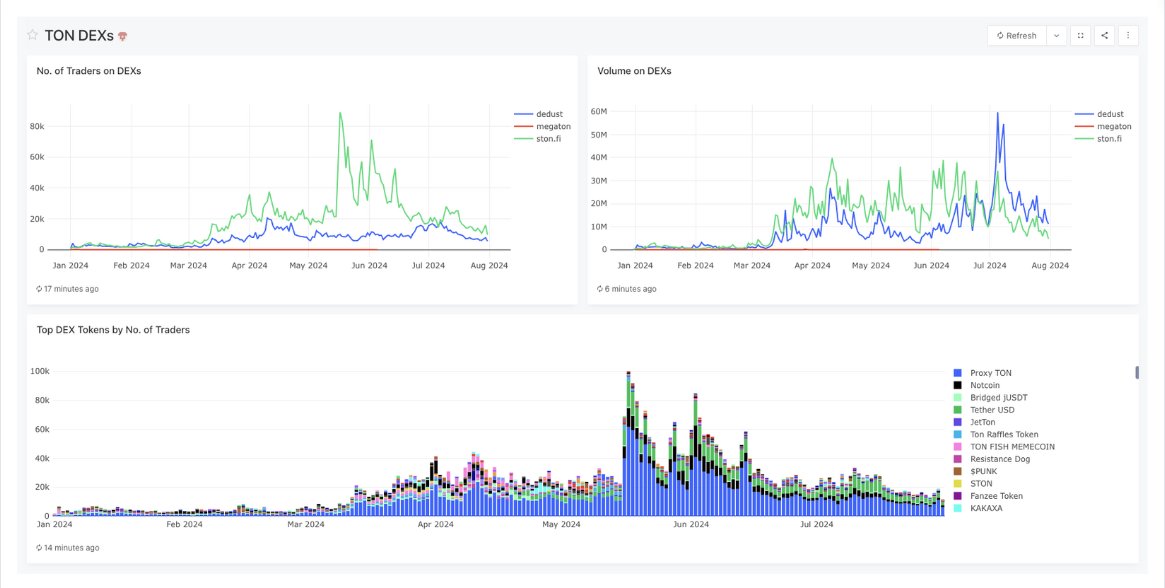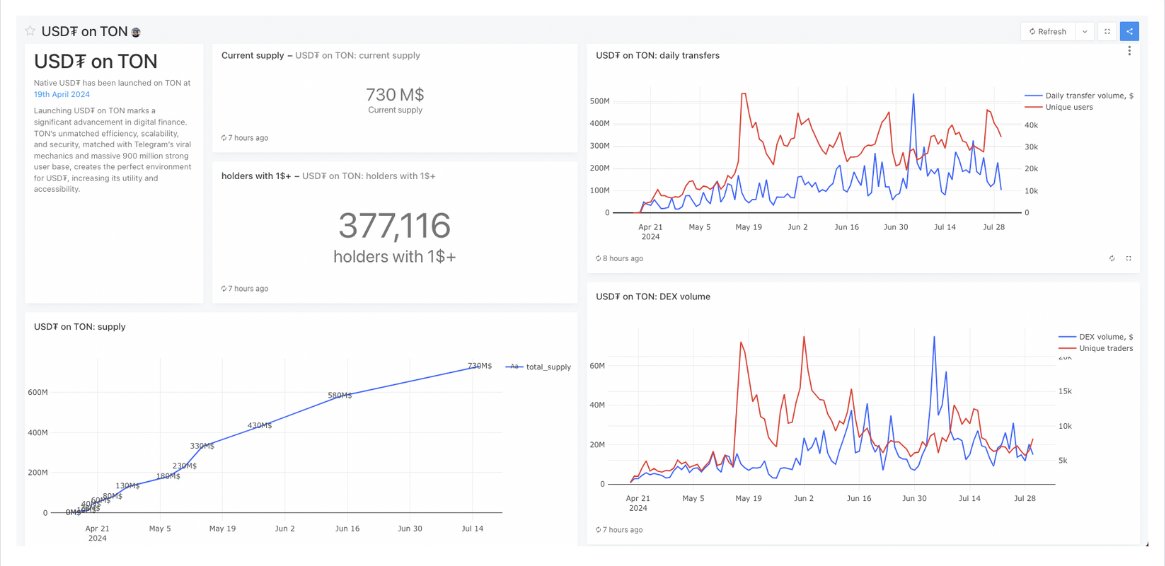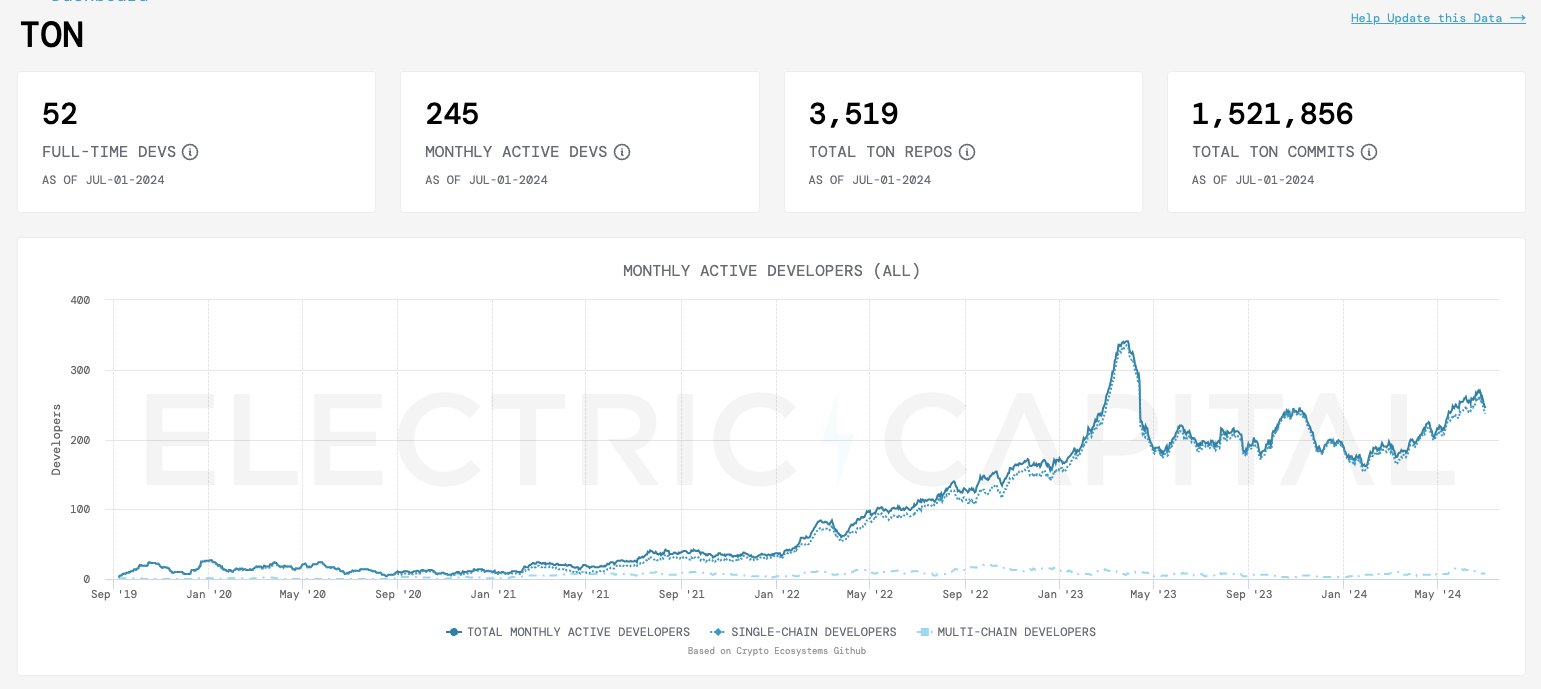The Open Network (TON) has been in the spotlight over the past year with record-breaking achievements in its ecosystem: Hamster Kombat aims for Guinness World Record, and its daily transfer volume has recently surpassed 10% of Bitcoin’s. DWF Ventures takes a closer look at the on-chain data to explore what's driving this success.
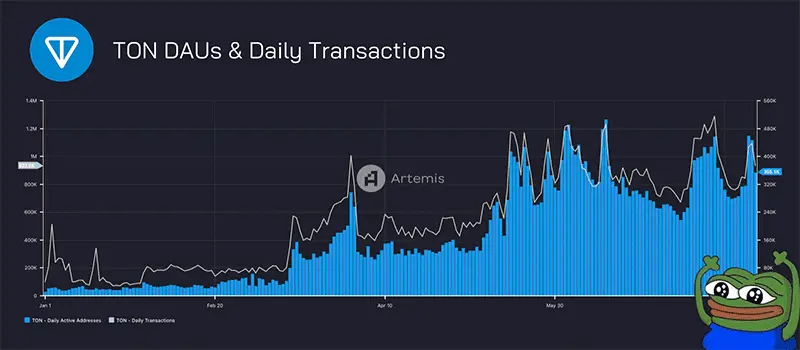
User Base Growth
TON has seen remarkable expansion, with its daily active users (DAU) increasing more than tenfold year-to-date. The number of daily transactions per user has also grown consistently. On certain days in 2024, TON's network activity has even surpassed Ethereum’s, establishing its position as a leading Layer 1 blockchain.
Mini-Apps Craze
A significant driver of TON's growth is its mini-app ecosystem. Notable mini-apps such as Notcoin and Hamster Kombat have gained traction, while Catizen, a newer addition, has attracted millions of users in a short time. These mini-apps are deeply integrated with the Telegram messaging platform, leveraging its massive user base with engaging, game-like features.
According to data from The Open League 5, mini-apps have been highly successful in attracting Web2 (off-chain) users. Given the gap between on-chain and off-chain users, TON has a tremendous opportunity to become the go-to blockchain for onboarding Web2 users, similar to Solana’s success in 2021.
DeFi on TON
DeDust and STON are the leading decentralized exchanges (DEXs) in the TON ecosystem. While STON boasts a larger user base, DeDust has outpaced its competitor in trading volume since July 2024. The most traded tokens year-to-date are TON, NOT, and USDT. Additionally, meme tokens occasionally gain traction but tend to fade quickly.
Tether Factor
The native Tether (USDT) was launched on the TON network on April 19, 2024, and its supply surged to over $730 million within just 3 months, closely rivaling the USDT supply on Solana. This introduction has significantly boosted liquidity flows between TON and centralized exchanges, with transfer volumes reaching approximately $1 billion in July 2024.
Toncoin (TON) Performance
TON's native cryptocurrency, Toncoin, reached a huge milestone in April 2024, surpassing $1 billion in daily trading volume. Although trading volumes have declined recently, the number of TON holders continues to grow, signaling increased user adoption within the ecosystem.
Developer Ecosystem
TON originally relied on the FunC language for writing smart contracts, which limited its developer base to those familiar with this unique language. But in 2023, TON introduced TACT, a new language similar to Rust, which has likely contributed to a surge in developer activity afterwards. The number of active developers reached a new ATH of 260 in July 2024, a promising indicator for the network’s technical future.
Overall
Beyond the buzz around mini-apps, key metrics across the TON ecosystem have been steadily improving. With the continued efforts of the TON team, the network’s growth potential remains enormous, and it is well-positioned to gain even more momentum in the second half of the year.
